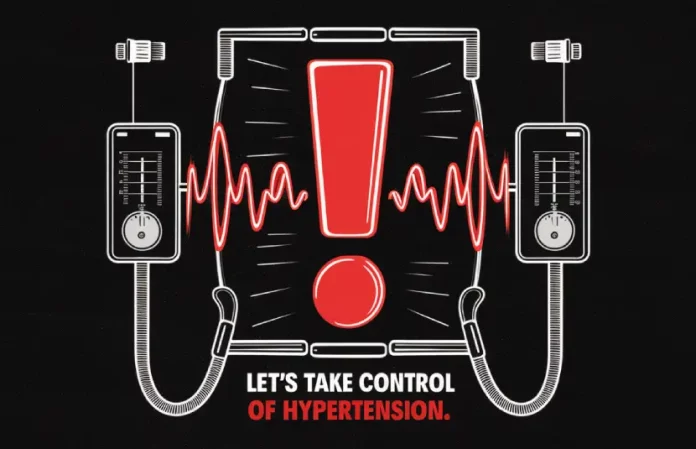
Hypertension, commonly known as High Blood Pressure, silently affects millions worldwide, often without any noticeable symptoms. It is a major risk factor for heart disease, stroke, and other cardiovascular complications. Recognizing the importance of raising awareness about this silent killer, World Hypertension Day is observed annually on 17th May. In this article, we explore the significance of this day, understanding hypertension, its causes, effects, and preventive measures.
Understanding Hypertension: What is it?
Hypertension occurs when the force of blood against the artery walls is consistently too high. Blood pressure is measured in two numbers: systolic pressure (the force when the heart beats) and diastolic pressure (the force when the heart rests between beats). Normal blood pressure is typically considered to be around 120/80 mmHg. However, when these numbers consistently exceed 130/80 mmHg, it indicates hypertension.
The Silent Threat: Causes and Risk Factors
Hypertension often develops over years, and its exact cause is often unknown. However, several factors contribute to its development, including:
Unhealthy Lifestyle Choices: Poor diet, lack of physical activity, excessive alcohol consumption, and smoking can significantly increase the risk of hypertension.
Genetic Predisposition: Family history plays a crucial role. If your parents or close relatives have hypertension, you are more likely to develop it.
Underlying Health Conditions: Certain medical conditions such as kidney disease, thyroid disorders, and sleep apnea can contribute to hypertension.
Stress: Chronic stress and anxiety can elevate blood pressure levels over time.
The Impact of Hypertension on Health
Hypertension is often referred to as the “silent killer” because it can quietly damage your body for years before symptoms develop. If left untreated, it can lead to severe health complications, including:
Heart Disease: High blood pressure can lead to coronary artery disease, heart failure, and heart attacks.
Stroke: Hypertension is a leading cause of stroke, which occurs when the blood supply to the brain is disrupted, leading to brain damage.
Kidney Damage: The kidneys play a crucial role in regulating blood pressure. Hypertension can damage the blood vessels in the kidneys, leading to kidney failure.
Vision Loss: Hypertension can damage the blood vessels in the eyes, leading to vision problems and even blindness.
Prevention and Management
The good news is that hypertension is largely preventable and manageable. Here are some lifestyle changes and strategies to help prevent and manage hypertension:
Healthy Diet: Adopt a diet rich in fruits, vegetables, whole grains, and lean proteins while limiting salt, sugar, and saturated fats.
Regular Exercise: Engage in regular physical activity, such as brisk walking, cycling, or swimming, for at least 30 minutes most days of the week.
Maintain a Healthy Weight: Excess weight puts additional strain on the heart and increases the risk of hypertension. Aim for a healthy weight through a balanced diet and regular exercise.
Limit Alcohol and Tobacco: Limit alcohol consumption and avoid smoking, as both can significantly increase blood pressure.
Manage Stress: Practice stress-reducing techniques such as meditation, deep breathing exercises, or yoga to keep stress levels in check.
Regular Monitoring: Get regular blood pressure checks, especially if you have risk factors for hypertension.
Conclusion: Spreading Awareness, Saving Lives
World Hypertension Day 2024 serves as a reminder of the importance of understanding, preventing, and managing hypertension. By making healthier lifestyle choices and seeking timely medical care, we can reduce the burden of this silent killer and protect our heart health. Let us unite in spreading awareness and empowering individuals to take control of their blood pressure and overall well-being. Remember, a healthy heart beats for a healthy life.
Stay Tuned to our Website Freshersnow.com for more interesting blog posts and educational content.
| You Can Also Check | |
| Current Affairs | |



